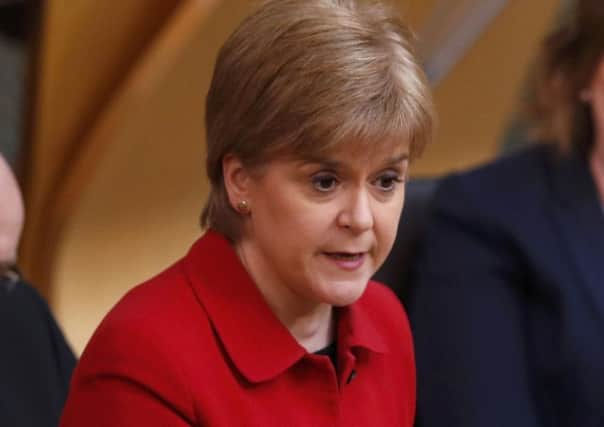SNP accused of misleading voters over fracking ban


Energy minister Paul Wheelhouse announced in October that fracking was “effectively banned” as the government unveiled the results of a four-month consultation that found overwhelming opposition to the process. Nicola Sturgeon later told MSPs: “Fracking is banned in Scotland – end of story.”
Grangemouth owner Ineos has challenged the ban at the Court of Session and a judicial review got under way today. The firm claims ministers acted “illegally” in announcing the ban last year.
Advertisement
Hide AdAdvertisement
Hide AdBut advocate James Mure QC, for the Scottish Government, indicated there is no formal ban in place.
“The concept of an effective ban is a gloss,” he said.
“It is the language of a press statement. What they have done is to announce a preferred position on the issue.
“They have not yet adopted a position. Any position which the government will take has to undergo an environmental and strategic assessment.”
The QC added that it will be October this year before this process is finalised.
The comments were met with an anger from political opponents.
Labour environment spokeswoman Claudia Beamish said: “Nicola Sturgeon and her ministers told MSPs – and more importantly campaigners and communities – that Scottish towns and villages were no longer at risk from fracking and the environmental damage it can cause because they had banned it.
“Now the government’s lawyer is saying the opposite - saying it is the language of a press release. SNP ministers need to explain this.”
Scottish Conservative energy spokesman Alexander Burnett also called for clarity from ministers.
Advertisement
Hide AdAdvertisement
Hide Ad“This is a staggering defence from an SNP government which has run out of excuses before the court case has properly begun,” he said.
“If the Scottish Government in court thinks fracking isn’t banned, it should probably tell every SNP politician – from the First Minister down – who’s been bragging to the contrary.
“This approach by the nationalists will convince absolutely no one, and shows just how ill-thought through the ban on fracking is.”
Hydraulic fracturing – known as fracking – involves drilling deep underground and fracturing shale rocks with high pressure water which in turn releases gas.
Scotland’s Midland valley has been estimated to be sitting on trillions of cubic tonnes of gas which could power the country’s homes for decades. But the process is controversial and opposed by environmentalists over the impact of greenhouse gas on the environment.
A moratorium – or temporary halt – was imposed in Scotland in 2015 while studies were conducted and widespread consultation was carried out before the “effective ban” was announced last year.
Ineos owns two fracking licences in Scotland and imports fracked shale gas from the United States to process at its refinery in Grangemouth. It has said that a ban on fracked oil and gas extraction would result in Scotland missing out on economic benefits, including about 3,100 jobs and £1 billion for local communities.
One of the parties involved in the case is the environmental charity Friends of the Earth Scotland.
Advertisement
Hide AdAdvertisement
Hide AdLawyers for Friends of the Earth will argue that a fracking “ban” is lawful and necessary to meet Scotland’s commitments to stop climate change.
The charity believes that it is the first time a public interest intervention has been granted in the Court of Session on environmental grounds.
Director Dr Richard Dixon said: “This is the first time that an environmental intervention has been considered in a judicial review in Scotland. We thought it was very important to do that because our major concern about fracking is about the impact it has on the environment.”
